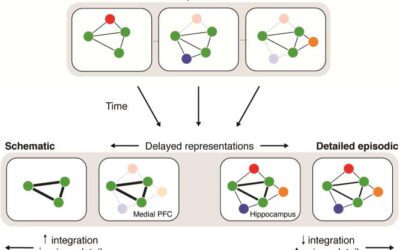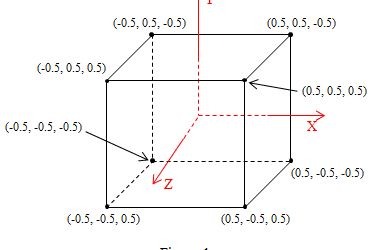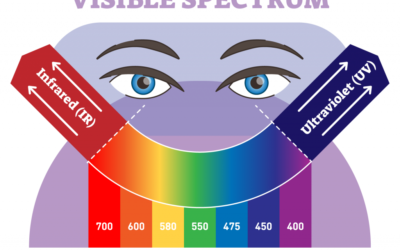
Vitamin A (as beta-carotene)
Vitamin A, particularly when sourced as beta-carotene, is essential for healthy brain development and ongoing function. As a potent antioxidant, it defends brain cells against oxidative stress, a type of cellular damage implicated in mental health conditions like depression, anxiety, and various neurodegenerative diseases.
Beta-carotene is a provitamin A carotenoid, found in colorful vegetables like carrots, sweet potatoes, and kale, which the body converts into retinol (active vitamin A) on an as-needed basis. This conversion process provides necessary vitamin A without the toxicity risk that can accompany high doses of preformed vitamin A.
Scientific evidence underscores this nutrient’s importance; research has shown that maternal vitamin A deficiency can significantly impair fetal brain development, potentially increasing the risk for neuropsychiatric disorders later in life (Suwannasri et al., 2018; Nutrients). Sufficient levels are vital for forming the hippocampus, the brain’s hub for learning, memory, and emotional control.
Vitamin A also helps maintain the integrity of the blood-brain barrier, a critical defense system that shields the brain from toxins while permitting essential nutrient access. A breach in this barrier is a known factor in many neurological and psychiatric conditions.
Furthermore, vitamin A is involved in the synthesis of serotonin, a key neurotransmitter for regulating mood, sleep, and appetite. Deficient serotonin levels are a well-established characteristic of depression and anxiety disorders.
Bioavailability is critical when selecting a vitamin A supplement. Many products use binders that either attach too strongly, preventing absorption, or too weakly, allowing stomach acid to destroy the nutrient. The chelation process used by Hardy Nutritionals is designed to create a stable bond, protecting the vitamin A until it reaches the intestines for optimal absorption.
In short, vitamin A (as beta-carotene) fosters mental wellness by supporting brain development, guarding against oxidative damage, preserving the blood-brain barrier, and assisting in serotonin production. Hardy Daily Essential includes this essential nutrient in a highly absorbable form within its balanced micronutrient supplement.
Tags: vitamin A, beta-carotene, mental health, brain development, oxidative stress, blood-brain barrier, serotonin, depression, anxiety, neurological disorders, psychiatric disorders, bioavailability, chelated minerals, micronutrients, nutritional supplements, Hardy Nutritionals
Vitamin C (as ascorbic acid)
Vitamin C (ascorbic acid) is a water-soluble vitamin famous for its potent antioxidant capabilities. Though best known for immune support, its role in brain function and mental health is equally critical.
As a primary antioxidant, vitamin C neutralizes damaging free radicals within the brain, protecting neurons from oxidative stress. This type of cellular damage is a known contributor to depression, anxiety, and neurodegenerative conditions like Alzheimer’s and Parkinson’s disease.
Vitamin C is also a vital cofactor for synthesizing key neurotransmitters, including serotonin, dopamine, and norepinephrine. These chemicals are essential for regulating mood, focus, and motivation. Consequently, low vitamin C status has been linked to reduced neurotransmitter output and a higher risk of depression.
Emerging research indicates that vitamin C supplementation may help improve mood and lessen anxiety. A systematic review of clinical trials found that vitamin C supplementation was associated with reduced anxiety levels and showed potential for improving depressive symptoms, particularly in populations with low vitamin C status (Plevin & Galletly, 2020; Aust N Z J Psychiatry).
Furthermore, vitamin C is crucial for healthy adrenal gland function, as the adrenals use it to produce stress hormones like cortisol. Chronic stress can deplete vitamin C stores, potentially leading to adrenal fatigue, mood instability, and mental exhaustion. Maintaining adequate vitamin C levels helps support stress resilience.
While vitamin C is plentiful in citrus fruits, berries, bell peppers, and broccoli, it is volatile and easily destroyed by heat and light. Many individuals may not get enough from diet alone to meet their daily needs.
When selecting a supplement, absorption and tolerance matter. Standard ascorbic acid can cause digestive upset at higher doses. Hardy Nutritionals utilizes a buffered form of vitamin C, which is designed to be gentle on the stomach and highly bioavailable.
In summary, vitamin C contributes to mental wellness by shielding the brain from oxidative damage, facilitating neurotransmitter production, supporting adrenal function, and potentially improving mood. Hardy Daily Essential offers a well-absorbed, buffered form of vitamin C as part of its comprehensive micronutrient formula.
Tags: vitamin C, ascorbic acid, mental health, brain function, oxidative stress, neurotransmitters, serotonin, dopamine, norepinephrine, depression, anxiety, stress, adrenal fatigue, bioavailability, buffered vitamin C, micronutrients, nutritional supplements, Hardy Nutritionals
Vitamin D3 (as cholecalciferol)
Vitamin D3 (cholecalciferol) is a fat-soluble vitamin that has garnered significant scientific interest for its profound impact on mental health. While essential for bone health, its role in brain development and function is now a major area of research.
Receptors for vitamin D are found in high concentrations throughout the brain, especially in key mood-regulating regions like the prefrontal cortex and hippocampus. It’s not surprising, then, that low vitamin D status has been consistently linked to a higher risk for depression, seasonal affective disorder (SAD), and schizophrenia.
Vitamin D’s influence on mental health is multi-faceted. It helps regulate the production of neurotransmitters like serotonin and dopamine, which are fundamental to mood and motivation. It also offers neuroprotective benefits, shielding neurons from inflammation and oxidative damage.
Moreover, vitamin D modulates the expression of genes involved in neuronal growth and differentiation. Sufficient vitamin D levels during pregnancy and early childhood are critical for proper brain formation and may lower the risk of neurodevelopmental disorders like autism spectrum disorder and ADHD.
The link between low vitamin D and depression is well-documented. A large meta-analysis of observational studies confirmed that individuals with vitamin D deficiency have a significantly increased risk of developing depression (Anglin et al., 2013; Br J Psychiatry). Furthermore, clinical trials have shown that vitamin D supplementation can help improve depressive symptoms, particularly in those who are deficient.
The main source of vitamin D is sunlight, which triggers its synthesis in the skin. However, indoor lifestyles, sunscreen use, and geographic latitude make deficiency common. Dietary sources are limited, found mainly in fatty fish, egg yolks, and fortified foods.
When supplementing, vitamin D3 (cholecalciferol) is preferred over D2 (ergocalciferol) as it is the form your body produces naturally and is more effective at raising blood levels. Hardy Nutritionals includes D3 in their Daily Essential formula for optimal efficacy and bioavailability.
In conclusion, vitamin D3 is a key nutrient for mental well-being, influencing everything from mood and neuroprotection to brain development. Ensuring adequate levels may help prevent and manage depression and other psychiatric conditions. Hardy Daily Essential provides a bioavailable form of D3 as part of its complete micronutrient supplement.
Tags: vitamin D3, cholecalciferol, mental health, brain function, depression, seasonal affective disorder, schizophrenia, neurotransmitters, serotonin, dopamine, neuroprotection, neuronal growth, neurodevelopmental disorders, autism, ADHD, sunlight, bioavailability, micronutrients, nutritional supplements, Hardy Nutritionals
Vitamin E (as d-alpha-tocopherol)
Vitamin E, especially the d-alpha-tocopherol form, is a powerful fat-soluble antioxidant crucial for preserving brain health and cognitive function. Though widely known for skin and heart benefits, its role in neurological wellness is just as important.
The brain’s high oxygen use and rich concentration of polyunsaturated fatty acids (PUFAs) make it uniquely vulnerable to oxidative stress. Vitamin E is a primary defender against this, neutralizing free radicals and protecting neuronal membranes from lipid peroxidation, a damaging process that can lead to cell death.
A large body of research links inadequate vitamin E status to cognitive decline and a greater risk for neurodegenerative diseases like Alzheimer’s and Parkinson’s. Conversely, studies suggest that higher dietary intake of vitamin E is associated with better cognitive performance and a slower rate of age-related cognitive decline (Boccardi et al., 2014; J Alzheimers Dis).
Vitamin E is also involved in proper neuronal signaling and communication. It is essential for maintaining the health of the myelin sheath, the protective insulation around nerve fibers that ensures rapid signal transmission. Damage to this sheath can impair cognition and is a hallmark of disorders like multiple sclerosis.
Additionally, vitamin E exhibits anti-inflammatory properties within the brain. Since chronic neuroinflammation is a known factor in conditions like depression, anxiety, and schizophrenia, vitamin E may offer protective benefits by helping to reduce this inflammation.
Dietary sources of vitamin E include nuts, seeds, vegetable oils, and leafy greens. However, achieving optimal levels through diet alone can be difficult, making supplementation a practical choice for many.
When selecting a supplement, the natural d-alpha-tocopherol form is superior to synthetic dl-alpha-tocopherol, as it is more bioavailable and biologically active. Hardy Nutritionals includes natural d-alpha-tocopherol in their Daily Essential formula for maximum absorption and benefit.
In essence, vitamin E (as d-alpha-tocopherol) is critical for brain health. It defends neurons from oxidative damage, supports cell-to-cell signaling, and helps control neuroinflammation. Adequate intake may help protect against cognitive decline. Hardy Daily Essential delivers a high-quality, natural form of vitamin E as part of its complete micronutrient supplement.
Tags: vitamin E, d-alpha-tocopherol, mental health, brain function, cognitive decline, neurodegenerative diseases, Alzheimer’s, Parkinson’s, oxidative stress, neuronal signaling, myelin sheath, neuroinflammation, depression, anxiety, schizophrenia, bioavailability, micronutrients, nutritional supplements, Hardy Nutritionals
Vitamin K1 (as phylloquinone)
Vitamin K1 (phylloquinone) is a fat-soluble vitamin primarily known for its essential role in blood coagulation. However, a growing body of research is revealing its significant and independent contributions to brain health and cognitive function.
The brain has a high concentration of vitamin K, particularly within the myelin sheath that insulates nerve fibers. It acts as a vital cofactor for synthesizing sphingolipids, a class of fats that are fundamental to the structure and function of myelin. Deficiencies in vitamin K can disrupt this process, which has been linked to cognitive impairment.
Vitamin K is also involved in synthesizing specific proteins that govern brain cell signaling. Key among these are Gas6 and protein S, which are involved in regulating neuronal survival, inflammation, and synaptic plasticity—the brain’s ability to adapt and form new connections.
Moreover, vitamin K demonstrates both antioxidant and anti-inflammatory properties, helping to protect brain cells from oxidative damage and chronic neuroinflammation. These two processes are well-established contributors to depression, anxiety, and neurodegenerative diseases like Alzheimer’s and Parkinson’s.
Observational studies support this connection. Research focusing on older adults has found a clear association between higher vitamin K1 (phylloquinone) intake and better cognitive performance, particularly in measures of verbal episodic memory (Presse et al., 2013; Neurobiology of Aging).
The main dietary sources of vitamin K1 are green leafy vegetables such as kale, spinach, and collard greens. It is also found in broccoli, Brussels sprouts, and certain vegetable oils.
When selecting a supplement, it’s important to note the form. Hardy Nutritionals includes vitamin K1 in their Daily Essential formula to support both cognitive and cardiovascular health as part of a comprehensive micronutrient strategy.
In conclusion, vitamin K1 is an important nutrient for brain health, supporting the myelin sheath, regulating key brain proteins, and providing antioxidant protection. Adequate K1 intake may help protect against age-related cognitive decline. Hardy Daily Essential includes vitamin K1 as part of its well-rounded formula.
Tags: vitamin K1, phylloquinone, mental health, brain function, cognitive decline, dementia, myelin sheath, sphingolipids, neuronal signaling, Gas6, protein S, oxidative stress, neuroinflammation, depression, anxiety, Alzheimer’s, Parkinson’s, green leafy vegetables, micronutrients, nutritional supplements, Hardy Nutritionals
Thiamin (Vitamin B1)
Thiamin (Vitamin B1) is a water-soluble vitamin that is fundamental to brain health and cognitive function. Its primary role is in energy metabolism, where it acts as a coenzyme to convert glucose (from nutrients) into the energy (ATP) that the brain and nervous system depend on.
The brain is the body’s most energy-demanding organ. Thiamin is essential for synthesizing acetylcholine, a neurotransmitter critical for memory and learning. It also contributes to the production of other key neurotransmitters like serotonin and GABA, which help stabilize mood and reduce anxiety.
Severe thiamin deficiency is known to cause serious neurological and psychiatric conditions, most notably Wernicke-Korsakoff syndrome, which presents with confusion, memory loss, and poor coordination. This is often seen in chronic alcohol abuse, as alcohol impairs thiamin absorption.
Even marginal, subclinical thiamin deficiency can negatively impact mental health, with studies associating it with cognitive deficits, fatigue, depression, and anxiety. Research has shown that improving thiamin status in deficient individuals can lead to corresponding improvements in mood and cognitive function (Luu et al., 2018; Metab Brain Dis).
Thiamin also functions as an antioxidant, helping to shield brain cells from oxidative stress and inflammation. Both of these damaging processes are implicated in the development of depression, anxiety, and neurodegenerative diseases.
Thiamin is found in whole grains, legumes, nuts, pork, and fortified foods. However, it is sensitive to heat and can be depleted by processing and cooking. Supplementation can be a reliable way to ensure adequate intake, especially for those with higher needs.
When selecting a thiamin supplement, bioavailable forms like thiamin mononitrate or hydrochloride are effective. Hardy Nutritionals includes thiamin as part of its Daily Essential formula to support optimal energy metabolism and mental well-being.
In short, thiamin (B1) is vital for brain energy, neurotransmitter synthesis, and antioxidant protection. Maintaining sufficient levels is key to preventing cognitive issues, depression, and anxiety. Hardy Daily Essential provides a bioavailable form of thiamin within its comprehensive micronutrient blend.
Tags: thiamin, vitamin B1, mental health, brain function, cognitive impairment, energy metabolism, acetylcholine, serotonin, GABA, Wernicke-Korsakoff syndrome, alcohol abuse, depression, anxiety, oxidative stress, inflammation, Alzheimer’s, Parkinson’s, whole grains, legumes, bioavailability, micronutrients, nutritional supplements, Hardy Nutritionals
Riboflavin (Vitamin B2)
Riboflavin (Vitamin B2) is a water-soluble vitamin with a vital role in brain health. It is the precursor to flavin adenine dinucleotide (FAD) and flavin mononucleotide (FMN), two coenzymes that are indispensable for cellular energy production (metabolism) throughout the brain and nervous system.
Given the brain’s immense energy demands, a steady supply of riboflavin is critical. A deficiency can impair energy production, manifesting as mental fatigue, ‘brain fog,’ and general cognitive sluggishness.
Riboflavin is also a powerful antioxidant, particularly through its role in regenerating glutathione, the body’s master antioxidant. This helps protect neurons from oxidative stress, a process strongly linked to depression, anxiety, and neurodegenerative diseases (Mocan et al., 2018; Frontiers in Neurology).
Additionally, riboflavin is essential for activating and metabolizing other B vitamins, especially folate (B9) and vitamin B6. These vitamins are, in turn, necessary for synthesizing mood-regulating neurotransmitters like serotonin.
Riboflavin deficiency has been linked to a higher risk of depression and is particularly noted for its connection to migraine headaches. In fact, a landmark randomized controlled trial demonstrated that high-dose riboflavin (400 mg/day) was significantly effective in reducing migraine frequency (Schoenen et al., 1998).
Riboflavin is found in dairy, eggs, lean meats, nuts, and green vegetables. However, it is sensitive to light and can be lost in processing, making supplementation a useful strategy for ensuring consistent, adequate intake.
When choosing a riboflavin supplement, bioavailable forms like riboflavin-5′-phosphate (R5P) can be beneficial. Hardy Nutritionals includes riboflavin in its Daily Essential formula to support brain energy and overall mental well-being.
Riboflavin and Holistic Mental Health Treatment
A holistic approach to mental health recognizes that well-being is a complex interplay of biological, psychological, and social factors. Nutrition is a cornerstone of this approach, as nutrient deficiencies can directly contribute to mental health disorders. Riboflavin, along with its fellow B vitamins, is essential for the brain function underlying mood and cognition.
The previously mentioned trial by Schoenen et al. (1998) on migraines highlights how a single nutrient can have a profound therapeutic effect. Other research, such as a study on folate, B12, and B6, found these vitamins enhanced antidepressant efficacy (Coppen & Bailey, 2000). Riboflavin is critical in this context, as it’s required to activate those very same B vitamins, illustrating the synergistic nature of micronutrients.
Holistic treatment pairs nutritional support with lifestyle interventions like stress management and exercise. Riboflavin supplementation, especially as part of a comprehensive, balanced formula like Hardy Daily Essential, provides the foundational nutrients the brain needs to support these positive changes.
In conclusion, riboflavin (B2) is critical for brain energy, antioxidant defense, and the proper function of other mood-related vitamins. Within a holistic framework, ensuring adequate riboflavin can help manage symptoms of anxiety, depression, and migraines. Hardy Daily Essential provides a bioavailable form of riboflavin as part of its complete micronutrient supplement.




























0 Comments